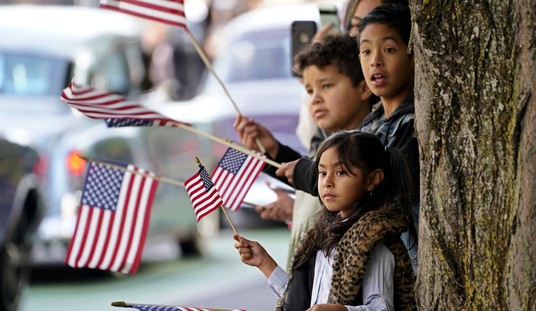I realize many of you are currently grappling with a potential trade war with everyone, a border security war with Mexico, a full-blown shooting war in Afghanistan and the possibility of the situation with North Korea turning into a, er… mushroom cloudy war if Kim Jong-un goes totally off the rails once again. It is, however, my sad duty to bring you up to date on yet another one. I first ran across the brewing hotspot back in July of 2015 and it involves the tense situation between the United States and Canada, specifically up along the northern coastal region of Maine. And it all has to do with the lobsters.
We’ll return to that conflict in a moment, but first we need to look at the other player in the lobster wars. That would be China. We learned this month that the Chinese, in response to one of President Trump’s executive orders on trade, basically shut down their markets to lobsters imported from the United States. This has made the stalwart sailors of Maine very sad. (NBC News)
In the port towns along Maine’s coastline, July is the lobster industry’s high season, but this weekend, new tariffs placed on U.S. lobster exports are set to destabilize the state’s leading industry.
“We can’t afford to be patient at all,” said Tom Adams, the CEO of Maine Coast, a major lobster distribution company. “We are making whatever moves we have to now.”
Twenty percent of his exports go to China but that market evaporated for Adams this week.
“We will lose a crucial part of the market that we’ve developed over the years here in Maine — losing sales and revenue for our company, possibly making us eliminate jobs,” he said from his processing facility in York, where he employs 54 workers.
So China put an extra 25% tariff on American lobsters. That’s shut down roughly one-fifth of the expected exports and left the fishermen scrambling to find new buyers. That’s bad news to be sure, but it’s only the latest problem the Maine lobster fishermen have been facing. Going back to that 2015 story I mentioned above, we have a border war going with Canada, centered on the “gray area” surrounding the Bay of Fundy off the coast of Maine. The stretch of water leading up to Grand Manan Island is rich in lobster and belongs to the United States, but the sneaky Canadians are claiming that it’s theirs. Of course, if you ask them, we’re the sneaky ones. This dispute has been going on for ages and putting the Maine lobstermen in conflict with Canadian boats.
Have no fear, ladies and gentlemen. President Trump is all over this problem. In much the same way as we handled illegal border jumpers coming in from Mexico, we’ve begun detaining Canadian ships in the region for inspection. Do you think I’m kidding? Think again. (CBC)
The U.S. Border Patrol says it has stopped 21 Canadian vessels this year in contested waters in the Bay of Fundy, and has no intention of stopping.
Fishermen from nearby Grand Manan Island recently said they were approached and questioned by USBP vessels near Machias Seal Island.
The contested island and surrounding waters, which begin about five kilometres southwest of New Brunswick’s Grand Manan, are known as the “grey zone.”
A spokesperson for the U.S. Customs and Border Protection, which oversees the USBP, said agents from Houlton, Maine, have “interviewed” 21 vessels as part of routine enforcement efforts. It’s not known how many of those were fishing vessels. No arrests were made.
Sure, there haven’t been any arrests yet. But isn’t that just how every global conflagration starts? A misunderstanding here, a missed phone call there… pretty soon there’s an accident and somebody’s fishing boat catches fire. And then it’s war.
On the plus side, with the decreased demand and smaller market for exports, lobster prices should be coming down. Bon appetit!









Join the conversation as a VIP Member